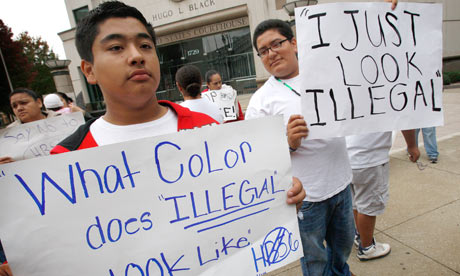By Zach Waksman
Impunity Watch Reporter, Africa
KINSHASA, Democratic Republic of Congo – Despite an ongoing threat of further bloodshed, elections took place in the Democratic Republic of Congo, the world’s least developed country, Monday to determine the constitution of the war-torn country’s government. Attacks over the weekend killed at least nine people, forcing the cancellation of some campaign events.

Monday’s elections were only the second in which the entire country was eligible to vote. Up to 32 million Congolese waited out delays that marred the proceedings as officials struggled to deliver materials to the polls. In some places, polling stations opened late, while others were so remote that helicopters were deployed to bring ballots. Though polls were supposed to have closed, they may remain open to allow all to vote because some of them never opened.
The ballots themselves were a problem in many locations.
“It was not really a ballot paper – more like a broadsheet newspaper,” said the BBC’s Will Ross, reporting from the capital, Kinshasa. “For the national assembly election in central Kinshasa there were 13 pages packed with candidates’ faces.”
The 500-member parliament had more than 18,000 candidates running for seats. In some districts, the candidates were listed by number and by name, a requirement for a country where a third of the adult population can neither read nor write. As a result, some voters brought slips of paper filled out by relatives to provide their chosen politician by number. Even with this assistance, the numbers did not always match the names. Problems such as this lead watchers to believe that the election’s legitimacy could be delegitimized.
“It’s like leading an animal to the slaughterhouse. It doesn’t realize until it gets there what is in store for it,” said Jerome Bonso, coordinator of the Coalition for Peaceful and Transparent Elections. “They led us into this election. The population was not prepared for it. And now there is a real risk of conflict when the results come out.”
Eleven candidates are running for a five-year term as president, including incumbent Joseph Kabila, who has been accused of attempting to rig the election in his favor. The son of Laurent Kabila, the man who overthrew longtime dictator Mobutu Sese Seko, Kabila has seen his popularity decline since his election in 2006; Mobutu’s son is one of his opponents. United Nations observers have reported that his backers have employed multiple underhanded tactics, including stuffing ballot boxes and voter intimidation and bribery.
Despite the questions of how free and fair the elections may be, U.S. Rep. Jim McDermott (D-WA) and MP Jeremy Lefroy (Conservative – Stafford) considered the number of registered voters and registered candidates “a triumph for democracy” in an opinion piece for the Huffington Post. But that alone is not enough.
“Often the biggest mistake made in peace-building is the belief that, when emerging from conflict, a good election will solve everything,” they added. “But regular and sound elections are only a first step. Free and fair elections are crucial, but it is what happens between elections that is most important.”
For more information, please see:
BBC — DR Congo Votes Amid Delays and Violence — 28 November 2011
Huffington Post — Congo at a Crossroads — 28 November 2011
Jakarta Globe — DR Congo Votes after Campaign Marred by Violence — 28 November 2011
New York Times — Millions Vote in Congo Despite Fears of Violence — 28 November 2011
Star Tribune — Violence, Late Ballots in Congo May Mar Vote in Sub-Saharan Africa’s Biggest Nation — 28 November 2011



